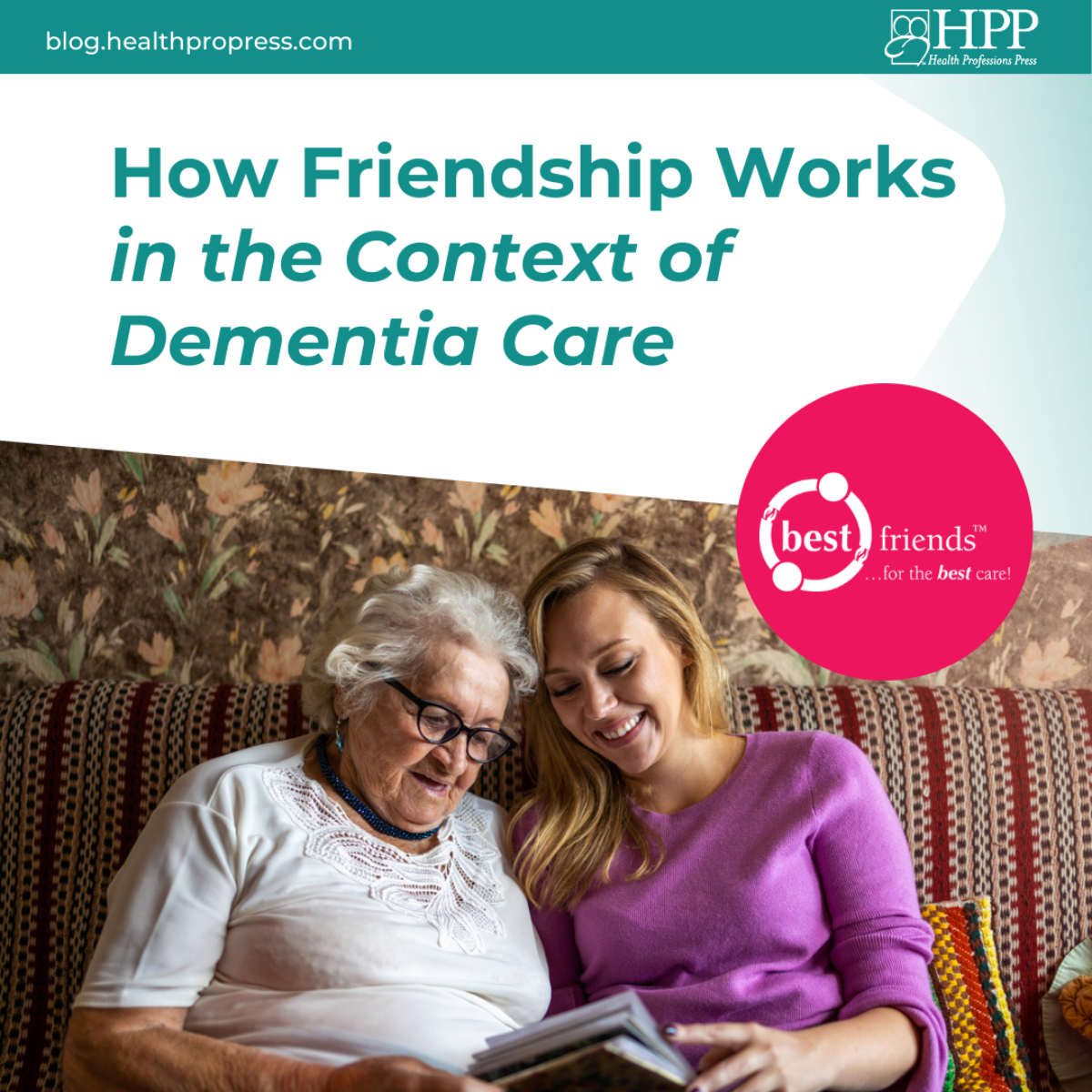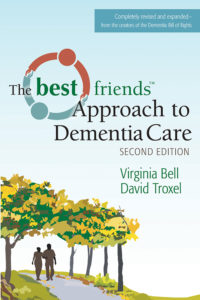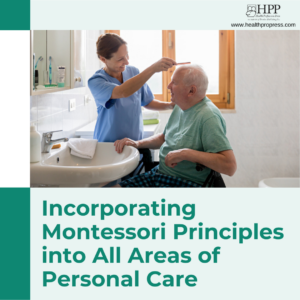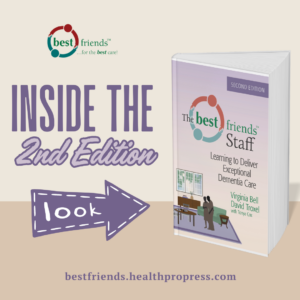
How Friendship Works in the Context of Dementia Care
If you are new to the field of dementia care, it might be confusing to think that an in-home client, day center participant, or resident can be a friend. Maybe you’ve been taught to address someone as Mrs. Smith instead of Anne. Maybe you are worried about boundaries. Why is it so important to think about the elements of friendship as you go to work every day with 40 people with dementia?
The reason goes back to empathy. It’s easy for someone with dementia to get lost in confusion and feel disconnected from the flow of life. Without our intervention, the person can become isolated. As a Best Friends care partner, you reach through the cloud of dementia to call someone by his or her name, make a joke, comment on a piece of jewelry, or give a hug, which tells the person that you care. As in any good friendship, when the person knows a caring friend is offering support, he or she feels better and more confident.
We understand that boundaries exist and you need to bring a professional manner to your work, but people with dementia need your partnership. They need the people around them in ways that people without dementia may not. As Best Friends™ co-creator Virginia Bell has said, ‘Persons with dementia may be confused about a lot of things, but they know if you are in relationship with them.’ Excellent dementia care is based on that relationship.
The following are elements of friendship and ways they can be applied to dementia care:
Friends know each other’s history and personality
In dementia care, a Best Friend becomes the person’s memory. You will need to be sensitive to the person’s traditions, and learn the person’s personality, moods, and problem-solving style.
Friends do things together
In dementia care, you should initiate activities, tie those activities into the person’s past skills and interests, and remember to celebrate special occasions.
Friends communicate
In dementia care, it’s important to listen and speak skillfully, speak using body language, and gently encourage participation in conversations.
Friends build self-esteem
In dementia care, give compliments often, ask for advice or opinions, and always offer encouragement.
Friends laugh often
In dementia care, tell jokes and funny stories, take advantage of spontaneous fun, and use self-deprecating humor often.
Friends are equals
In dementia care, you won’t talk down to the person or assume a supervisory role. You’ll always work to protect the dignity of the person, to “save face.”
Friends work at the relationship
In dementia care, you cannot be overly sensitive, and should show affection often. You do more than 50% of the work and build a trusting relationship.
For more examples on how to incorporate friendship into dementia care, see The Best Friends™ Approach to Dementia Care, Second Edition, by Virginia Bell and David Troxel.
Excerpted from The Best Friends™ Approach to Dementia Care, Second Edition, by Virginia Bell and David Troxel. Copyright © 2017 by Health Professions Press. All rights reserved.
Read the book
 The Best Friends™ Approach to Dementia Care
The Best Friends™ Approach to Dementia Care
Second Edition
By Virginia Bell, M.S.W. and David Troxel, M.P.H.
Copyright © 2017 by Health Professions Press, Inc.
Successfully implement this relationship-centered approach to dementia care that builds on the essential elements of friendship—respect, empathy, support, trust, and humor.





Add comment